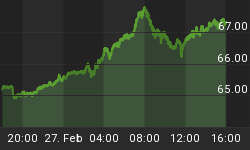DELL reported positive results after the bell yesterday, with quarterly earnings and revenues rising by 27.5% and 8.5% respectively compared to last year. However, with per share earnings missing analyst estimates and operating margins sliding to 5.29% (from 6.1% in 2Q08), shares traded sharply lower after hours.
While DELL may or may not be able to keep its turnaround/restructuring story alive, it is becoming increasingly obvious that the supergrowth days of the late 1990s are gone. Moreover, given that DELL's share price continues to be obscenely priced compared to book, it is also clear that shareholders still see something in DELL that I am missing. Is it really worth paying $63 billion for something that is worth $6.8 billion on paper?
The DELL Story
Being perfectly positioned to benefit from the trend of computers becoming a common home appliance, DELL's stock price soared as the company consistently reported strong increases in revenues, earnings, and shareholders equity in the 1990s. However, as the PC industry matured and the U.S. stock market mania ended, DELL's stock price crashed: at yesterday's close DELL shares were still down more than 50% from their 1999 highs.
Whether you care to look at DELL's spectacular revenues, earnings, margins, or book value record, the story is much the same: the unbelievable returns generated in the late 1990s were the aberration while the last 7-years are likely to be closer to the norm. As a quick example, DELL averaged 54% in annualized revenue growth in the 1990s with no single year coming in below 20%, but the last time the company increased annual revenues by 20% was 7-years ago.

In recent years declining business returns have compelled the company to alter its direct business model and focus on entering retail and potentially higher growth areas of the world (i.e. China). From a book value perspective these efforts have yielded recent results, albeit not as strong as those achieved during the late 1990s.

Recent successes aside, the continued uncertainty that comes with DELL's evolving business model is hardly priced into the stock. Rather, in the early 1990s investors paid a couple times book to own DELL shares and today they pay almost 10-times book. Does a much larger and less attractive growth/return story really warrant a significantly higher P/B premium?
The optimist could argue that if DELL simply used 50% of free cash to pay a dividend the company could have returned 65 cents to shareholders in dividends over the last four quarters (this would imply a 2.3% yield on the stock, which is above the average yield on the S&P 500). But what the optimist should remember is that the DELL's fortunes can change quickly and a dividend may not be sustainable. Recall that the company went from having nearly $3 billion in working capital to a negative working capital position in only seven quarters (ending Jan 31, 2003). Moreover, the optimist should remember that while the company's share repurchase program was recently stopped ($27+ billion has been wasted in repurchases since fiscal 1999), taking the place of repurchases has been acquisitions. Stock repurchases can juice earnings by reducing share count and/or keeping employee costs off of the income statement (if you are into the EPS game this may be important to you), while the outcome from acquisitions is considerably less certain.
Since May 1, 1998 DELL has generated $34.4 billion in free cash flow while during the same time the company added only $5.4 billion to shareholders' equity. Translation: for every dollar in free cash generated approximately 16 cents in shareholder wealth (net equity) is created. As analysts play the meaningless EPS game and slumping DELL shares near a seemingly attractive price/free cash flow multiple, be aware that exactly how and when shareholders are going to be rewarded from what looks like a successful turnaround at DELL remains a mystery...
In short, that the dividendless DELL 'model' always generates a lot of cash means very little unless 'a lot' can somehow be translated into shareholder returns. By contrast, that DELL trades at ridiculously high P/B level could mean another demolition in the company's share price if DELL's remodeling efforts do not progress smoothly.
"When we talk about creating value for our shareholders, cash generation for us is the ultimate litmus test." ~ DELL CEO, Don Carty. November 29, 2007
Disclosure: No one at FallStreet.com has any investment position in DELL.















